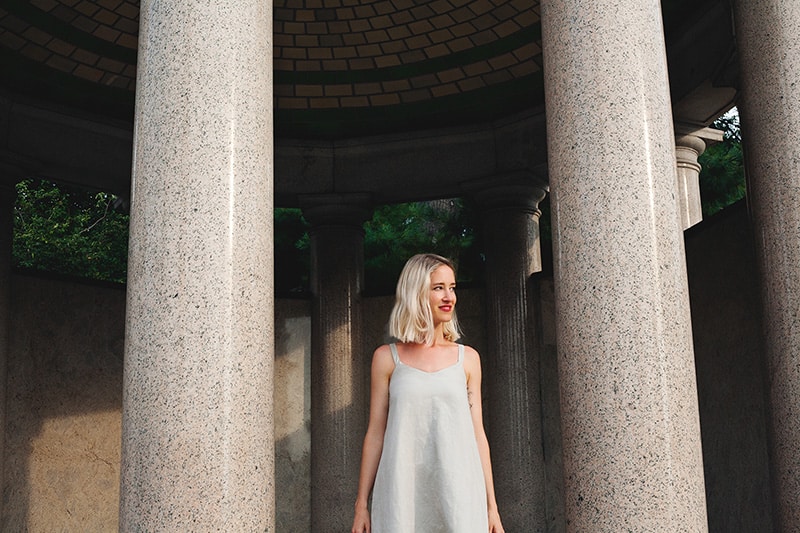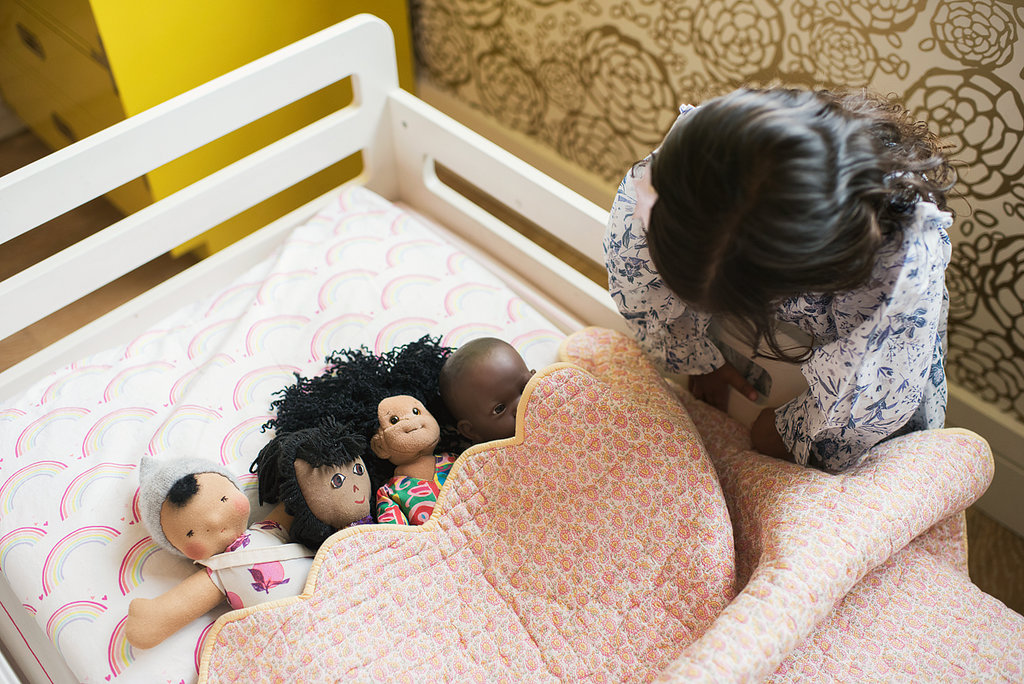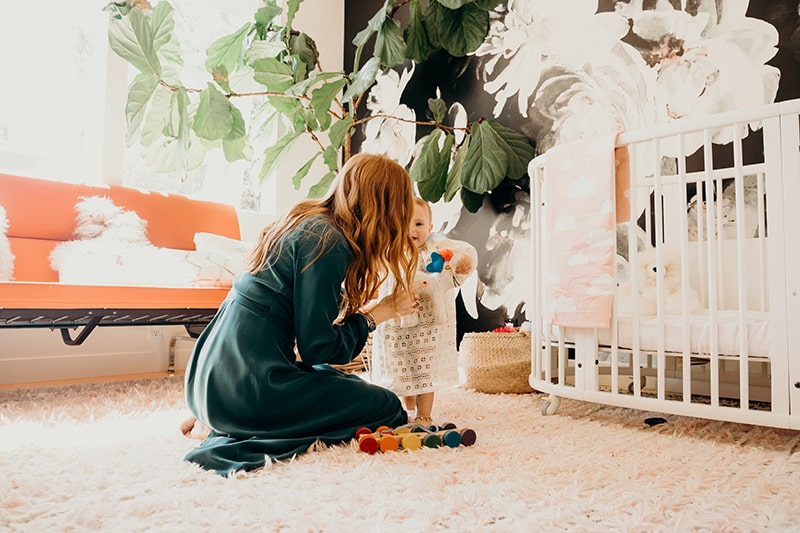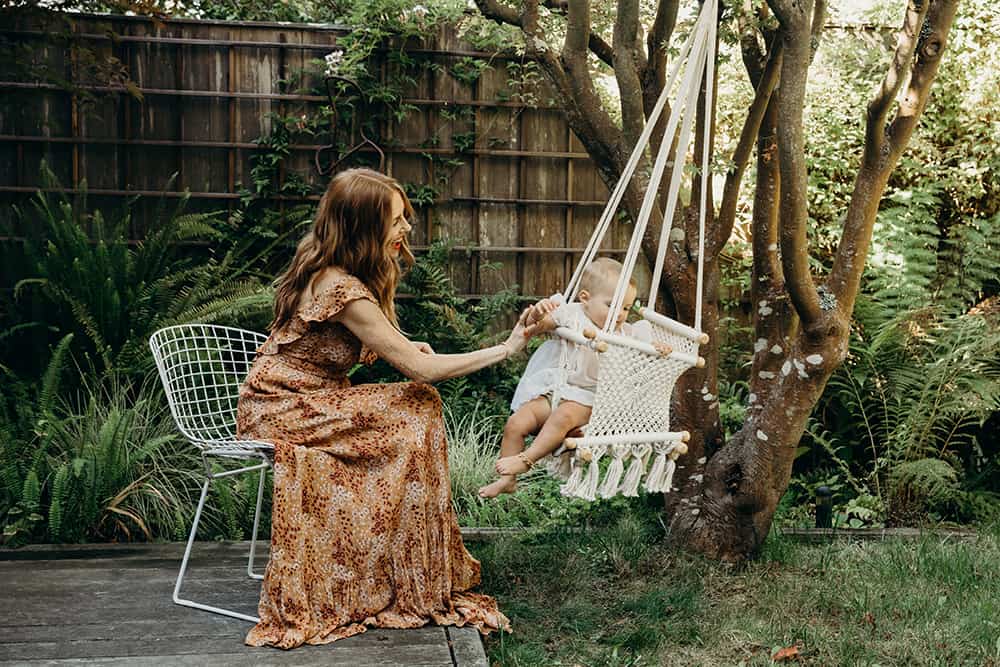
Paths To Motherhood: The Birth Mother
Written by Katie Hintz-Zambrano
Photography by Photographed by Jasmine Gregory
Knowing that not all families are started the super traditional way (i.e. girl gets pregnant with ease, pops out baby, brings baby home), we bring you our column Paths To Motherhood, highlighting women who have taken a less than typical route to becoming a mother. This time around we are sharing the incredibly moving story of Amy Seek, a woman who gave her son up for adoption fifteen years ago and chronicled her emotional tale in the new book God and Jetfire: Confessions of a Birth Mother. Here, we sit down with Seek and hear about her unique motherhood journey.
Amy Seek & Jonathan*
Amy currently resides in London
Tell us about the moment you started thinking about giving your child up for adoption when you were 23. Was the choice difficult for you?
“When you’re young and faced with an unplanned pregnancy, every alternative is terrifying. There’s no option that can return you fully to the person you were before. But among the options, adoption had a tiny, dim light about it. A couple would be happy; the child would live—those certainties stabilized me. They were solid ground in a situation that had upended everything, and they provided enough traction to keep me moving forward. I could get comfortable at least on an abstract level with adoption. But as much as I read and sought counseling to prepare myself for the final decision, which couldn’t be made until after the birth of the child, I was never endowed with some special strength or cold certainty about it. I had doubt about whether I could do it from the moment the idea first came to mind—when I realized I wasn’t ready to get married, but I couldn’t bear to terminate the pregnancy—to the present moment, fifteen years later, when I can still be overwhelmed with the thought that I have to live my entire life without my child, and I still wonder on some level whether it can be done.”
How did you find out about the option for “open adoption”? What about it appealed to you?
“Open adoption was presented to me in my first conversation with a social worker at Catholic Social Services, when, still incredulous about my pregnancy, I had dialed several numbers listed in those first few pages of the phone book—abortion, abortion alternatives, crisis pregnancy—wanting to give fair consideration to every option. I’d never heard of open adoption before that first meeting with Catholic, but it seemed like an in-between option; I didn’t have to get rid of the baby entirely, but I didn’t have to take on the responsibility of parenting, which I wasn’t ready for. Open adoption, as I understood it then, was a structure built on things that, even if they were hard to achieve, were also undeniably good: honesty, openness, communication, respect. Grief was inevitable, but I thought the grieving would be more bearable, for me and eventually my child, if those good ambitions were at the heart of the decision.”
Tell us how you came to find Paula and Erik, Jonathan’s adoptive parents. How involved was Jonathan’s birth father, Jevn?
“Jevn and I embarked on the search for a couple together. We broke up when we realized we weren’t ready for marriage, but he was as concerned as I was that we do the best for our child, and we worked tirelessly together. We were given a few Dear Birthmother letters from the files at Catholic Social Services, and the process might have been as simple as selecting our favorite. Instead, we reached out to agencies and couples across the U.S., creating our own exhaustive questionnaire, corresponding, speaking on the phone, and visiting couples over the course of several months. There were glimmers of hope with some couples, but I always unearthed an issue—one couple didn’t like eating outside in the summer because of the bugs (a tiny thing, but what would it mean for a childhood, hiding from bugs and all the messy things that make for a glorious summer?)—that stopped me from moving forward with each couple. On some level, my scrutiny felt natural and fair, but on another level I feared I just wasn’t capable of wanting someone else for my child’s parents.”
“Paula and Erik’s profile didn’t stand out at first, but it also didn’t make me cringe or want to throw it in the canvas bag where I put the seriously unbearable profiles. I reached out to them as I did all the ‘maybes,’ sending off our questionnaire and inviting them to begin a correspondence. What soon became clear was that they had qualities we hadn’t known to aim for: a fearlessness in self-reflection, a willingness to shift their thinking in response to a sound argument, a forthrightness about the grief they endured when they learned they couldn’t have children. I’d met couples who seemed to be paralyzed by desire for a child, but when I met Paula and Erik, they were still figuring a lot of things out, still in school themselves, still thinking hard about the way they wanted to live. I loved the particular way they parented their adopted daughter, with such an easy confidence, and I liked their daughter, herself—which was not a feeling I’d felt for the other potential siblings I’d met. We communicated for several months before my son’s birth. We didn’t have much in common, but they shifted my own thinking about the importance of that. They said they hoped that instead of representing us, standing in for us in our son’s life, showing our son the things we would have shown him, they hoped we would be there in our son’s life, representing ourselves. They told us that we were the sort of people they’d like to have in their lives, which made me realize the extent to which this process demanded scrutiny on both sides, it took a mutual effort to achieve the kind of real trust and commitment a healthy, lifelong relationship would require.”
Tell us about your experience giving birth and spending those precious first days with Jonathan, knowing you were going to give him up.
“I had a natural childbirth, against advice I’d read in adoption brochures that warned against getting close to the baby if you want to go through with an adoption. I felt deeply the opposite: I could only go through with an adoption if I fully understood what I was doing. How could I be a good mother, how could I trust the durability of a decision made with my eyes shut? And more than that, I wanted to know my child, and labor would be a really special way to do that. It would be the closest I would ever get to be to him, so of course I wanted to feel everything. We labored for 27 hours, my body didn’t want to let go, and waking up to him, keeping him for those first few days (against the advice of the adoption brochures) was the most extraordinarily satisfying experience of my life. It definitely made giving him up harder, but giving up a child could never be easy. And I wouldn’t trade those days or that knowledge of him for anything.”
How did the adoptive parents help you in that moment (or make things more difficult)?
“They helped me by offering me the same freedom and respect I saw in the way they parented their daughter. They comforted me, they were present, but at a slight distance; they expressed their support for any decision I might make; they assured me I’d be a good mother and they wouldn’t regret having met me if I chose to keep my son. They were fearless in their affection, for both of us. They understood the stakes more than my own family did, and they made me feel less alone. They made it more difficult only inasmuch as they gave me no reason to doubt them. If they had, there wouldn’t have been a decision to make. I’d have kept my son. But I felt a complicated thing, simultaneous with my deep desire to keep my son, a confidence that they should have him and a desire for him to have them.”
How did you all decide how “open” the adoption would be. Are there forms put in place, or is it all based on a verbal agreement and handshake?
“Openness couldn’t be contractually enforced, and I had heard about couples closing adoptions claiming the birthmother’s presence was too difficult for the child. But I’d have never given my child to anyone I trusted so little that I’d rely on a contract to keep them present in my life. I didn’t need an agreement with Paula and Erik because I knew they were built the way I was. They wouldn’t close their eyes to make things easy, or lie to themselves about what was good for my son. They would embrace the pain and complexity, the real conditions of his birth, and they’d eventually help my son do the same. If they did close the adoption, I would actually trust that it really was for the best of my son, and I’d also trust that the question wouldn’t end there. They’d continually reevaluate and reassess and communicate with me about it. They wouldn’t leave me utterly in the dark.”
In your book, you talk about how open adoptions fell out of popularity, and have had a resurgence of late. Can you tell us a little about the history that you’ve uncovered on the topic?
“Open adoptions are gaining in ‘popularity’ because studies have shown that openness is beneficial for everyone involved, leading more agencies to offer it. My guess is that children do better in open adoptions because fictions don’t have the resilience of truth. A child who has to face his birth story might wish he didn’t know about it and didn’t have that painful history to contend with, but when the underlying reality is the child was loved, that truth will lie in wait, perfectly intact, for the time the child is ready to be in some way comforted by it. Having the biological story present in the child’s life gives him time to take small bites of it within the safety of his family. Seeing that his parents don’t fear it, a child can perhaps more easily regard adoption as a thing not to fear. I’d think it would be a different story altogether if the adoptive parents hadn’t truly come to terms with the child’s story, or with adoptive parenting as something with unique challenges and without the easy, immediate, and gratifying attachment that usually accompanies biological parenthood.”
What was your first meeting like with your son after letting him go. How long was it after you gave birth?
“It was just a few weeks after his adoption. It was a big shock. It was the shock I think every parent faces, but I faced it right away: the realization that my child was not my own. He moved and coughed and stretched and yawned and grew—without me. When I thought about him from a distance over that first month, he took the form of a deep soulmate, someone with a sophisticated understanding of me, so to see that he was just chewing on rubber things and trying to hold up his head was very strange. And, of course, it was hard to accept that from then on we’d never have the closeness we had when it was just him and me, asleep at night, waking to nurse. His adoptive parents would be the ones who knew him in those intimate, sweet hours at night. I am fortunate that his parents have often shared with me what those moments are like, what my son says in them, how much he reminds them of me. They make me feel I have a share in it.”
What have your meetings been like since, and how consistent are they?
“They are always hard and fun and primally complex and happy and heartbreaking. I see my son as often as I can, about every three or four months, though less now that I live in London. I am always surprised at the ease with which he greets me. The effortless smile, the unhesitant hug. His eagerness to tell me the latest things, to show me something in his room are evidence to me of how hard his parents have worked to make me present for him, even when we’re apart, and to help him understand me as a thing to love and look forward to. Alongside the many other foundations they promised years ago to give him—an education, a secure home, a stable family—they’ve helped to build a foundation for a relationship with me and his father I hope we’ll enjoy for the rest of our lives.”
What are some of your favorite memories with him?
“Being a birthmother for me means always doubting my connection to my child. The decision to sign the papers happens in a single moment in time; so many other moments follow when you search for ways to undo it. I mean something more complex, of course, than sneaking back to steal your son. It’s not simple happiness to see him. There’s incredible satisfaction in knowing he’s healthy and safe, being raised by people I continue to trust, but the best times are when I see that he’s looking for our connection, too, searching in some way for the same bridge I am. I think it’s a simpler exercise for him, and I’ve seen evidences of this since he was very young. He’ll ask me a question about his adoption, or he’ll show me that he’s kept the things I’ve given him—things that show me he understands who I am. Then there are the easy things. Watching him learn to skateboard. Making pancakes with him. Taking walks around the neighborhood, looking for something to do. Meeting his friends. He makes me laugh. He is clever with words. He is honest and forthright. He carries my bags into the house. Moments with him are, of course, too few, painfully truncated, and there’s no real consolation for that.”
What compelled you to write a book about your experience?
“I realized only when I was pregnant and sitting on a couch in the adoption agency trying to decide whether I wanted to do adoption that all adopted children have mothers. I’d known adopted people, and even as I studied the ways they were different from their families, I’d never wondered, never even thought about where they came from. The invisibility of birth mothers in the adoption stories I’d come across made me think early on that I should write about it. What’s interesting is that I’ve since heard both adoptive couples and adult adopted children say the same thing: That their sides of the adoption experience are underrepresented. Which to me just speaks to our residual perception of adoption as something not to speak about. And, all the more, I’ve wanted to speak about it.”
What do you want people to know about the birth mother experience that they might not realize?
“It’s hard to generalize about the experience of other birth mothers, but what might be common is that the experience itself doesn’t end, the grief and the processing take different shapes, but there’s no getting rid of it entirely, because every day brings new loss as the child grows. Even having made the decision yourself, even in the midst of a healthy relationship with the child and its parents, adoption is still painful, and even when you’re miles away from your child and fully engaged in a life you could only be living because of the adoption, your day can be made when someone remembers you’re a mother. Say ‘Happy Mother’s Day’ or ‘How’s your son?’ My own family, who love me and watched me go through the process and saw how painful it was for me, over the years would occasionally express genuine surprise that I was still thinking about the adoption, that it was still a ‘thing.’ They’d want me, for my own sake, to get over it. They were threatened by the lingering grief in a way I’m not.”
When people ask you if you have children, do you usually tell them about your son?
“Of course I tell them. I don’t mention him on my tax forms, but if there’s space for an explanation, I will. The story can seem intense and burdensome and people often haven’t had time to get comfortable with it the way I have, so I see people struggling with how to respond. Should they say, ‘I’m sorry for your loss?’ They don’t know instinctively whether they should congratulate or console me, but because I’m comfortable, it’s generally the case that they are, too. People respond in the way they are cued to respond. I’ve only occasionally had a really negative response, but it seemed clear that there was something else going on in each of those cases. I’m not saying I don’t think I deserve criticism, I think my decision begs the question, How could I do it? How could I live with myself? How can I call myself a mother? And I don’t mind those questions if they’re earnest; I think about those things all the time. Other than that, I love to talk about my son. What mother doesn’t want to talk about her child?”
After going through this experience, are you interested in having a child that you raise in your home, in addition to the relationship you have with your birth son?
“Definitely. Since my son’s birth, I’ve thought mothers who get to keep their children are so, so lucky. I’m primed from my experience to think that raising a child is a great privilege, a great gift, and I don’t take it for granted. I’m getting to the age where it’s really a question, and I have sympathy I didn’t always have for infertile people who can seem paralyzed by desire for a child. I spent so many years after giving up my son doing all the things I couldn’t have otherwise, that now, when I am finally ready to have kids, I don’t know whether I’ll be able to. I think raising a child will be painful because it will certainly tell me something more about what I missed with my son. And it may be painful for him to witness my love for another child. But these are exactly the pains that don’t go away because we avoid them.”
For more on Amy Seek’s emotional story, scoop up her new book, God and Jetfire: Confessions of a Birth Mother, $19.89, via Amazon.
*Some names have been changed to protect the privacy of those involved.
Share this story




